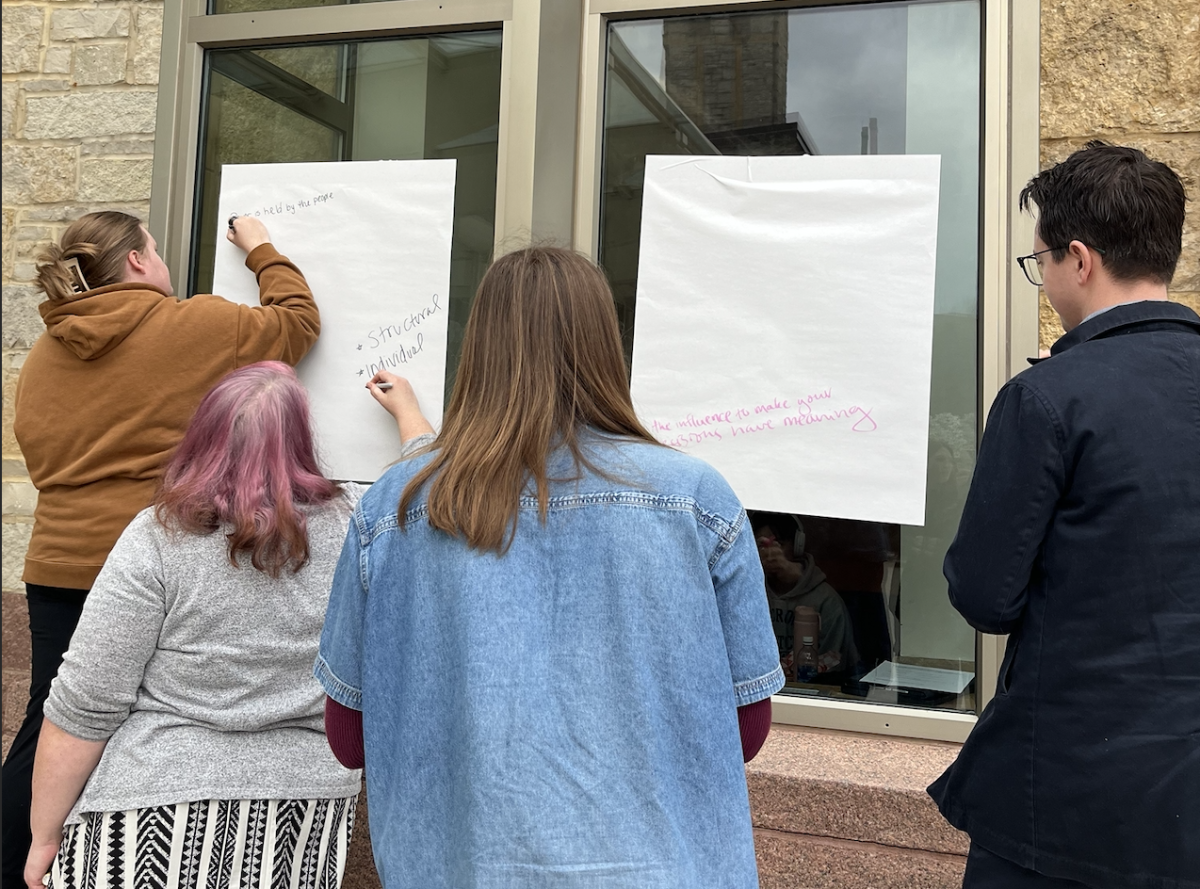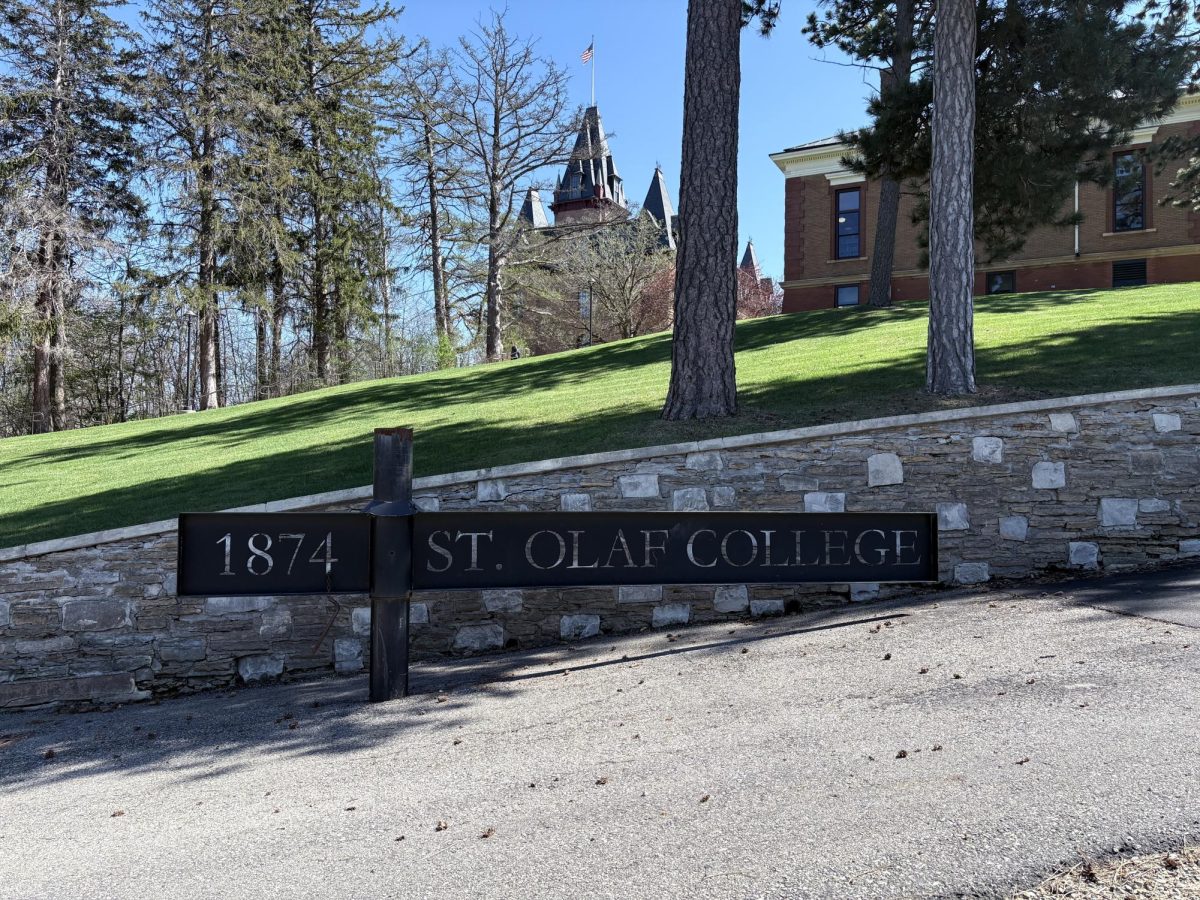Professor Lourdes Ortega was hesitant to visit St. Olaf after hearing about the intensity of Minnesotan winters. Fortunately she visited on a beautiful September day, avoiding any exposure to the region’s extreme weather. Ortega, who teaches linguistics at Georgetown University, traveled to St. Olaf to give a presentation titled “Aptitude and Motivation: How Important for Foreign Language Learning Success?” The event was held in Viking Theater and was attended by approximately 100 St. Olaf faculty members and students.
When the list of Ortega’s awards and publications in flagship journals, such as the Annual Review of Applied Linguistics, Applied Linguistics, Foreign Language Annals, The Journal of Second Language Writing and others were shown as part of the introduction, she joked that it reminded her why she is always tired. Indeed, she was at St. Olaf to present the research to which she devotes her life: the study of foreign languages, particularly the relationship between aptitude and attitude in foreign language study.
Based on her research in the field, Ortega asserted that some have a natural gift for language and are able to quickly adapt. This ability, however, is multidimensional; it includes implicit learning, an ability for analysis and memory capacity.
“Some people are strong at analyzing and some at memorizing,” she said. “If you teach people with the method in which they have aptitude in, they will have a chance to learn faster, better and happier.”
Regarding students who are not blessed with any of these abilities, Ortega proposed to “help them figure out their goals, what they want to accomplish, in a realistic, but inspiring way.”
The Georgetown scholar introduced two popular linguistic tests, the Modern Language Aptitude Test (MLAT) and High Level Language Aptitude Battery (HiLAB). Given St. Olaf’s requirement that all students enroll in a foreign language course, the question was put to Ortega of whether these tests need to be administered to students. She responded by deeming the question “politically and ethically dangerous,” and recommended against such mandatory testing, as it could result in discouraging students and create an unhealthy relationship between professor and pupil.
The research of other scientists, such as Guilloteaux and Dornyel in South Korea and Moskovsky in Saudi Arabia also show the large role motivation plays in foreign language learning.
“What teachers do with their students in the classroom actually matters,” Ortega said.
She went on to discuss how her discoveries regarding motivation were gained through extensive interaction with students as a language teacher. Students have a wide range of incentives to learn, varying from integrative motivation (the willingness to integrate with native people), to instrumental motivation (grades), to intrinsic motivation (the self-satisfaction of learning), to identified motivation (pressure imposed on them by others). Knowing about these incentives can help teachers “identify students’ motivation and cater to it to help them learn better.”
In her conclusion, Ortega emphasized the equal importance of aptitude and motivation, and how the study of foreign languages is not a completely internal process but is also affected by external factors, the most important of which is the contribution of teachers. Regarding aptitude and attitude, she said teachers should provide suitable assignments and activities for each type of ability and remain encouraging.
Presented as it was to the St. Olaf community at the beginning of the new academic year, the speech promptly reiterated the college’s commitment to excellent foreign language education. Hikari Sugisaki ’17 found the speech insightful because it broke the conceptualization of language learning as solely a matter of diligence.
“I found that it was really nice that her presentation covered how motivation and aptitude affects language learning for both the teacher and the student,” Sugisaki said. “Her talk gave me good insight into how I could be a better tutor for Japanese, as well as be a better student for Chinese.”
The talk was hosted by the Department of Asian Studies with sponsorship from the Robert Laraas Fund.


